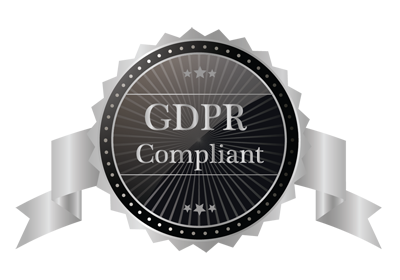It’s become common in the UK for people to use CCTV and audio recording devices for residential purposes. However, people often misunderstand the legality of these practices. In short, video and audio surveillance aren’t illegal for residential use. However, there are some t’s you need to cross and i’s you need to dot.
As experts in technical surveillance countermeasures (TSCM), Advanced Sweeping aims to clarify the legal landscape surrounding home audio surveillance and CCTV use in the UK.
What Are the Legal Implications of Home Surveillance?
Let’s break down the legal sides of CCTV and audio recordings:
Residential CCTV
Using CCTV cameras for home security is generally legal in the UK, provided certain guidelines are followed:
- Cameras should capture footage of your property only.
- If your cameras inadvertently capture areas beyond your property (e.g., neighbouring gardens or public spaces), you must comply with data protection laws.
- You must inform visitors you’ve got CCTV in place. This includes putting up visible signage.
- You must securely store recorded footage and delete it when you no longer need it.
So, while video surveillance is often permissible, audio recording carries additional legal considerations.
Residential Audio Recording
The legality of audio recording in residential settings is more complex than video surveillance. Under UK law, you can record conversations you’re part of without informing the other parties – provided the recordings are for personal use. However, if you intend to share or use these recordings publicly, you may need to obtain consent from all of the parties involved.
Recording conversations you’re not part of, especially without consent, can lead to legal issues. Laws such as the Regulation of Investigatory Powers Act 2000 (RIPA), the Data Protection Act 2018, and GDPR come into play. They impose strict guidelines on how personal data, including audio recordings, must be handled.
What About CCTV That Also Records Audio?
When you use CCTV that records audio, you have to install proper signage and notify individuals that they’re being recorded.
Practical Considerations for Home Audio Surveillance
To make sure you stay within legal limits, you need to select appropriate home surveillance equipment. The market currently offers a variety of audio surveillance devices:
- Digital voice recorders
- USB audio recorders
- Hidden audio recording devices disguised as pens, flash drives, or everyday objects
- Portable listening devices
- Covert surveillance devices like wireless microphones
Whenever you use any recording device, your compliance with UK law remains paramount. Overt recording – where participants are informed – is typically safer and less legally fraught than covert methods.
Voice-Activated Recorders
Voice-activated devices provide convenience but carry legal risks:
- They may inadvertently capture conversations without user control.
- Prolonged recording can lead to excessive data collection.
To mitigate these risks, make sure your recorder is used in controlled environments only where you have explicitly gotten consent.
What Are the Risks of Covert Audio Surveillance?
Using covert listening devices or hidden audio recorders can lead to serious legal and ethical repercussions. Privacy violations, fines for non-compliance, and reputational damage are just some of the risks. To avoid these outcomes, focus on transparent and lawful surveillance practices, including:
- Obtain consent from all parties involved in the conversation.
- Use overt recording devices rather than discreet equipment.
- Inform participants of the purpose of the recording and how it will be used.
- Ensure recordings are stored securely and deleted when no longer needed.
- Do not share recordings without the consent of all recorded parties.
How Can You Protect Yourself from Illegal Listening Devices?
To protect yourself from potential illegal audio surveillance:
- Regularly inspect your home for hidden devices.
- Be cautious about bringing unfamiliar electronic devices into your home.
- Use a professional bug sweeping service like Advanced Sweeping for thorough detection.
- Be aware of sudden changes in electronic behaviour, such as interference on phone lines.
- Educate yourself about common surveillance techniques and equipment.
What Should You Do If You Suspect Illegal Audio Recording?
If you suspect you’re being illegally recorded, follow these steps:
- Do not confront the suspected perpetrator directly.
- Document any evidence or suspicious circumstances.
- Contact the police to report your concerns.
- Consider engaging a professional TSCM service to thoroughly sweep your property.
- Seek legal advice to understand your rights and potential courses of action.
How Can Advanced Sweeping Help with Audio Surveillance Concerns?
At Advanced Sweeping, we offer comprehensive home TSCM services to detect and counter potential audio surveillance threats:
- Thorough sweeps using state-of-the-art detection equipment
- Identification of wireless and wired surveillance devices
- Detection of hidden microphones, transmitters, and recorders
- Expert analysis of potential vulnerabilities in your home or office
- Advice on improving your privacy and security measures
Our team of experts can provide peace of mind and ensure your personal and professional spaces remain free from unwanted surveillance.
Ensuring Compliance with Home Audio Recorder Use
Home audio surveillance and CCTV systems can enhance residential security, but they come with legal responsibilities. Adhering to transparency, consent, and data protection laws is vital to avoid potential legal pitfalls. If you’re considering installing surveillance equipment, consult a legal expert and prioritise ethical practices.
For comprehensive TSCM services and guidance on protecting your privacy, contact Advanced Sweeping. Let us help you navigate the complexities of home surveillance while ensuring your security and peace of mind.

